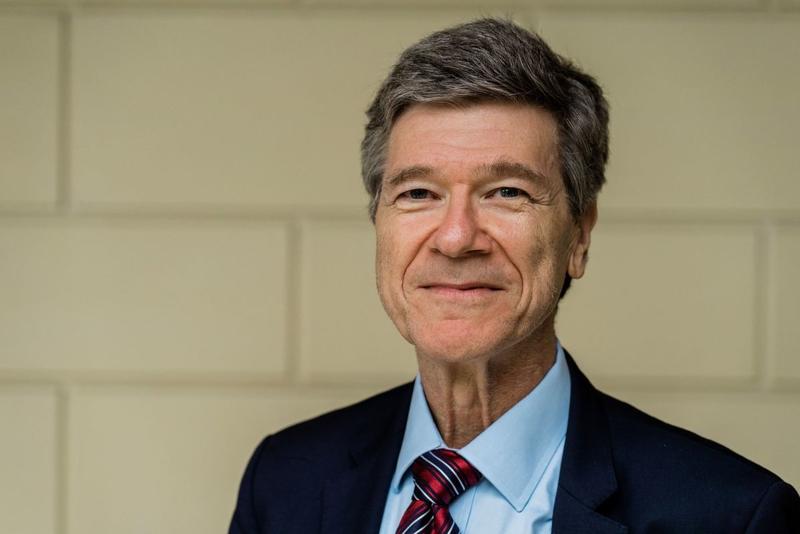 Jeffrey Sachs. (PHOTO / CHINA DAILY)
Jeffrey Sachs. (PHOTO / CHINA DAILY)
As a special adviser to three consecutive secretaries-general of the United Nations, including the incumbent Antonio Guterres, Jeffrey Sachs is considered one of the main architects of the UN's sustainable development goals.
Among the 17 goals, poverty eradication ranks first.
In the 30 years before the COVID-19 pandemic, global poverty significantly declined, Sachs said in a video speech aired Wednesday as part of the latest Vision China event. The global poverty rate was reduced from around 30 percent in 1990 to about 10 percent in 2015, said the renowned economist, who is director of the Center for Sustainable Development at Columbia University.
"China played a huge role in that because China was overwhelmingly poor, and then it had basically ... by 2015 largely eliminated poverty, and now, has eliminated extreme poverty as of this year," he said.
Sachs first went to China in 1981 to conduct research after becoming an assistant professor at Harvard University and has traveled to the country almost every year since.
"I've watched over a period of 40 years this transformation. It has been absolutely dramatic," he said.
At the same time, China has contributed to fighting global poverty by investing in other countries' basic infrastructure through projects like the Belt and Road Initiative, Sachs added. "These are extremely important and positive contributions," he said.
The world still faces two major challenges on poverty, Sachs said. One is that there are still "hundreds of millions of people living in real desperation", especially in Africa, and the other is the COVID-19 pandemic, which has imposed "a very serious crisis for poor people in many parts of the world".
The solution is a three-part process, Sachs said. This involves: ending the pandemic as soon as possible, using the methods China has used and the vaccines many countries are developing; broad economic development through initiatives like the BRI, which should be "anti-pollution, sustainable and renewable-energy-based"; and targeted help to places that still have deep poverty, which China has been providing and can continue to do.
Sachs suggested that China and the European Union work together, combining the BRI and the European Union Recovery Fund that the EU recently launched to help its member states recover from the pandemic. They can also invest in public infrastructure in the Eurasia region first, especially in advanced technologies that China is pioneering, such as renewable energy, 5G wireless technology and electric vehicles.
Sachs said that the current US administration is in a very non-operative, or "anti-cooperative" mood.
He said he would like to see China become even more cooperative with other countries, to point out the difference between "America first" and China, which says the whole world should work together.
"We face very complex challenges and we should approach them with rationality and with seriousness," said Sachs, whose most recent book, The Ages of Globalization: Geography, Technology, and Institutions, was released in June.
Calling a cold war "the worst idea", Sachs said he believes that China, as one of the world's greatest civilizations, has a lot more to offer the world, "and the UN is exactly the spirit in which this can be offered".
China and the United States are both founding members of the United Nations, which is observing the 75th anniversary of its founding this year.
"We should use the occasion to rededicate ourselves to the very core of the UN, which is human dignity, peace and sustainable development," Sachs said.


